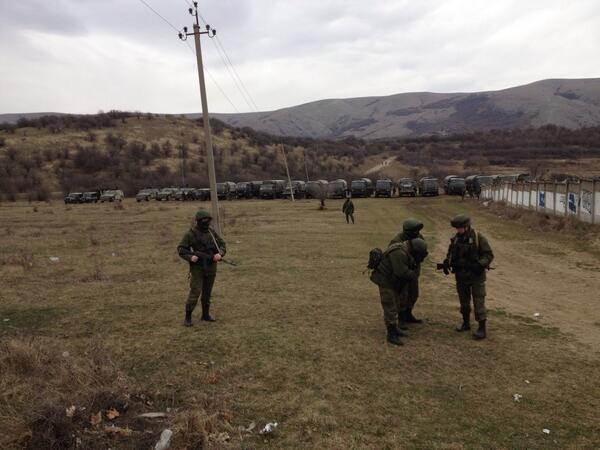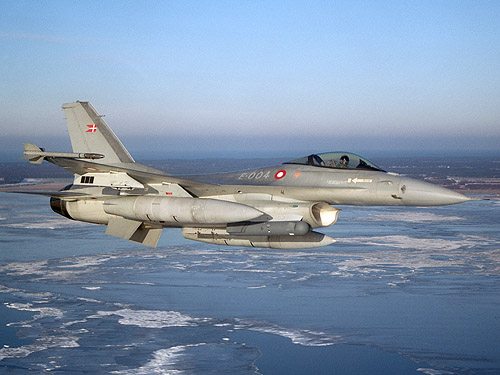Ukraine’s armed forces are on “full combat alert” against a possible Russian invasion, Kiev said Wednesday, as authorities admitted they were “helpless” to prevent pro-Kremlin insurgents tightening their grip on the increasingly chaotic east of the country.
Rebels stormed the regional police building and town hall in the eastern Ukrainian city of Gorlivka, local officials told AFP, adding to more than a dozen locations already under their control.
The new seizure followed clashes in nearby Lugansk on Tuesday, as hundreds of pro-Russia protesters spearheaded by a heavily armed mob attacked the police station.
On Wednesday, the rebels lifted their siege of the HQ building after the police chief promised to step down.
In another apparent gain for the rebels, local media reported pro-Russian militants had seized the council building in the city of Alchevsk without encountering resistance.
Ukraine’s interim president Oleksandr Turchynov told his cabinet that the nation’s law enforcement bodies were “helpless” to prevent the insurgents storming official buildings in the restive east.
He said the nation’s armed forces have been put on “full combat alert” in the face of what he called a “real threat” of Russia starting a war against the former Soviet Republic.
Turchynov urged Ukrainian “patriots” to bolster the beleaguered police force, which he has criticized for “inaction and in some cases treachery”.
His priority was to prevent “terrorism” spreading in the restive east, where he said some police officers were even cooperating with the separatists.
He warned also that there could be “acts of sabotage” by Russia during public holidays at the beginning of May.
‘Undeclared war’
The defence ministry announced that the security services would hold drills in central Kiev overnight but this was not expected to involve military hardware.
Yulia Tymoshenko, a former prime minister who is a frontrunner for presidential elections on May 25, said Russia had already started an “undeclared war” against her country.
The West has accused Russia of fomenting the crisis and backing the rebels and has imposed sanctions to try to get Moscow to back down.
The United States and EU members see the insurgency as a bid to destabilize Ukraine ahead of the elections but Moscow denies it has a hand in the rebellion.
President Vladimir Putin insisted late Tuesday that there were “neither Russian instructors, nor special units, nor troops” operating in Ukraine.
The separatists have vowed to hold a referendum on closer ties with Russia on May 11.
And Denis Pushilin, one of the leaders of the self-declared Donetsk Republic, told reporters on a trip to Moscow that the eastern Ukrainian region will not take part in the May 25 presidential polls.
The Kremlin said Putin had spoken to British Prime Minister David Cameron on Wednesday and both had agreed that an end to the crisis could only be achieved through peaceful means.
Hope for the OSCE
Meanwhile, negotiations continued to secure the freedom of seven European monitors from the OSCE as the rebel leader holding them said they would be released “at the first opportunity”.
“The dialogue is constructive. We understand each other,” the self-styled mayor of the flashpoint town of Slavyansk, Vyacheslav Ponomaryov told reporters.
Talks are dragging on for “technical reasons,” he added, without elaborating.
Michael Bociurkiw, an OSCE spokesman, told reporters in nearby Donetsk that the held men were “in good health” but added: “As the days roll on, you become increasingly concerned about their well-being.”
Putin said he hoped the team from the Organization for Security and Cooperation in Europe would soon be able to “freely leave the territory” of Ukraine, but laid the blame squarely at Kiev’s door.
Officials, he said, “should have understood that they (the OSCE inspectors) were entering a conflict zone, a region of the country that does not recognize the authorities’ legitimacy”.
‘Already in recession’
Putin also warned the sanctions against his country could harm Western interests in Russia’s lucrative energy sector.
“If this continues, we will of course have to think about how (foreign companies) work in the Russian Federation, including in key sectors of the Russian economy such as energy,” said Putin, speaking at a regional summit in Minsk.
His comments threaten the operations of some of the world’s biggest energy companies in the resource-rich country, once viewed as a reliable alternative to unstable natural gas and oil-producing countries in the Middle East.
The EU said talks with Russia and Ukraine will take place in Warsaw on Friday to try to resolve a $3.5-billion (2.5-billion-euro) gas bill Gazprom calculates Kiev owes. Putin has threatened to cut off the gas flow to Ukraine if it is not quickly paid.
Russian officials have accused the US of wanting to reinstitute “Iron Curtain”-style policies and warned the sanctions would “boomerang” back to hurt it.
But the tensions are already having an impact on the Russian economy, which the International Monetary Fund announced Wednesday was already “experiencing recession”.
The IMF drastically slashed its 2014 growth forecast for Russia to 0.2 percent from 1.3 percent, amid massive capital outflows since the crisis began.
The Ukrainian economy is also suffering, according to government data published Wednesday, with the economy shrinking 2.0 percent in the first quarter compared to the last three months of 2013.
The EU, which Russia has accused of “doing Washington’s bidding”, is considering beefing up sanctions by targeting Putin’s inner circle but some member states are “very reluctant”, sources told AFP in Brussels.
The crisis in Ukraine has slipped rapidly into a global confrontation since February, when Moscow-backed president Viktor Yanukovych was forced out after months of increasingly bloody protests.
In response, Moscow launched a blitz annexation of the peninsula of Crimea, and stepped up troops deployments on the border.











